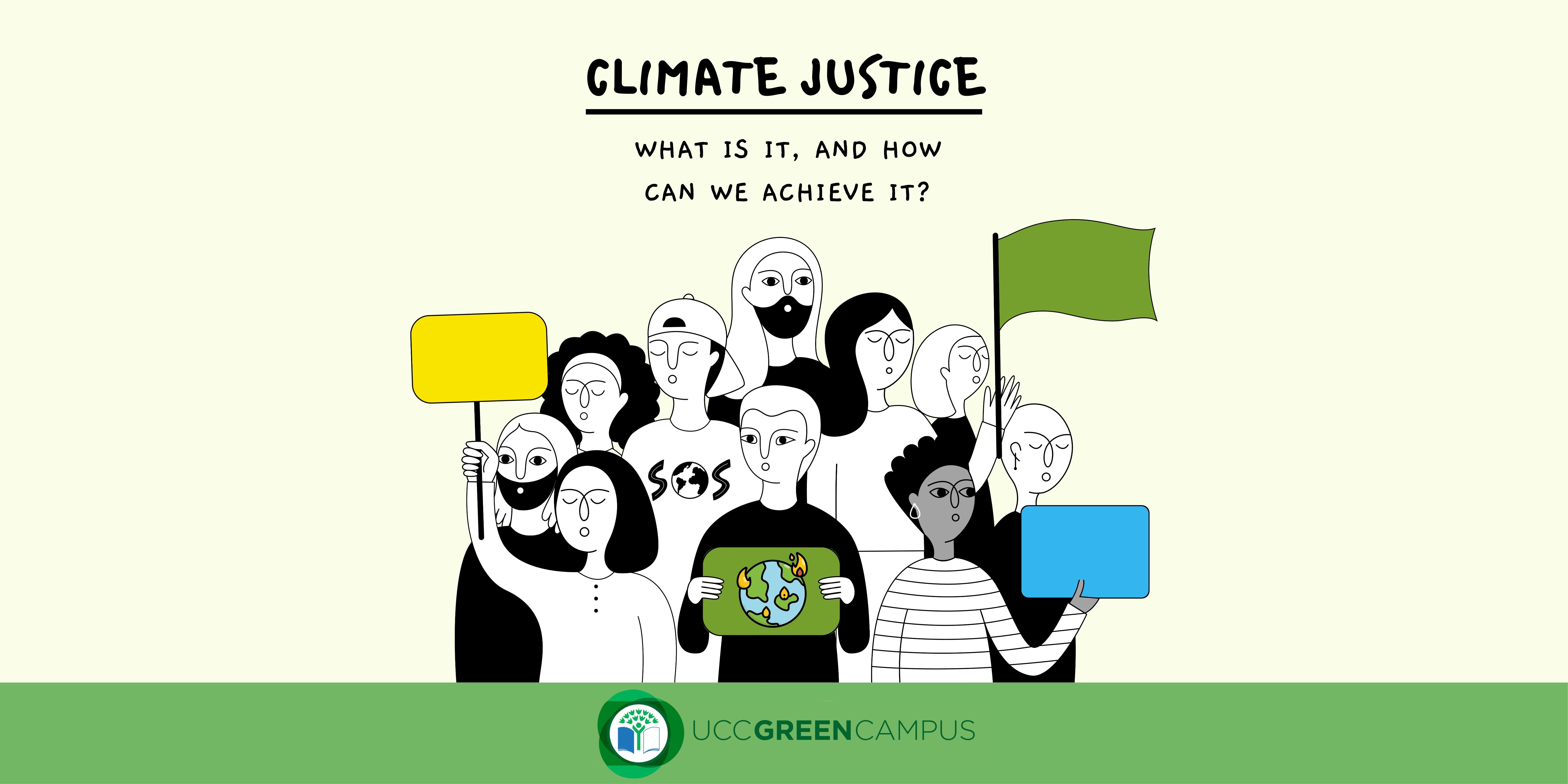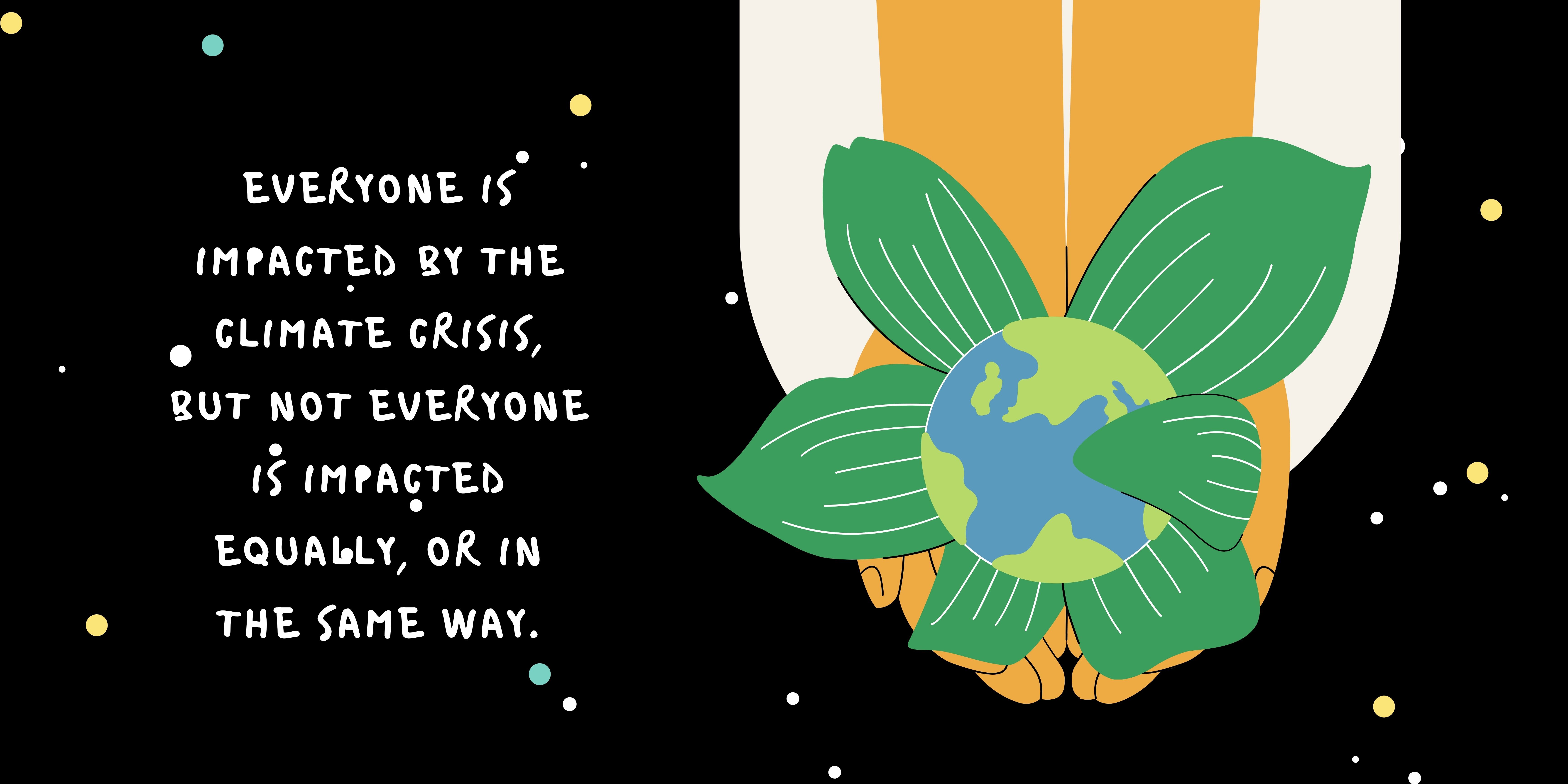- Home
- About
- Student Led
- Research Informed
- Practice Focused
- Resources
- News
- Green Campus Podcasts
- Case Studies
- Green Labs Community
News
Introduction To Climate Justice: What Is It And How Can We Achieve It?

When first getting involved with environmentalism, it’s not unusual for people to feel overwhelmed, and at times, even intimidated, because these are complicated issues and it’s easy to feel like everyone else is an expert, especially when you're only at the beginning of your sustainability journey.
It’s important to keep in mind that no one is born understanding the ins and outs of climate science or environmental policy. We all have to start somewhere. Anthropogenic climate change is a complex topic. It can be hard to figure out what exactly the problem is, especially when you consider that the climate crisis overlaps with a great deal of social justice issues.
There is a lot of information out there, whether it be online, in the news, or in your local library, and that can often make it harder to find straightforward answers to your questions. This is especially true in the context of climate justice
Climate justice is one of those environmental terms that has become increasingly common in recent years, and it’s not always easy to find out exactly what this term means and how it relates to your life. A commonly used definition of climate justice that was coined by Mary Robinson is as follows:
‘Climate justice links human rights and development to achieve a human-centred approach, safeguarding the rights of the most vulnerable people and sharing the burdens and benefits of climate change and its impacts equitably and fairly. Climate justice is informed by science, responds to science and acknowledges the need for equitable stewardship of the world’s resources’[1]
To put it simply: climate justice is a human-rights based approach to climate change that aims to ensure that no one is left behind. This is crucial, especially when you consider that those least responsible for causing the climate crisis are those that are and will suffer the most as a result of its impacts[2]. Historically, the Global North have been responsible for producing the majority of carbon emissions[3]. However, it's countries in the Global South that are going to bear the brunt of rising sea levels, drought, famine, and extreme weather events.

We live in a world that is riddled with injustices, and unfortunately, existing inequalities are exacerbated during times of crisis. The current Covid-19 pandemic, for example, has exposed and highlighted the severe social inequalities that are rampant in our society[4]. The same is true for the climate crisis[5]. Marginalised social groups and vulnerable populations are more severely impacted by climate change.
Lack of access to healthcare, education, employment, political representation, and existing social and cultural discrimination all contribute to an increased exposure to climate hazards and vulnerability to environmental degradation. People living in poverty are more likely to be exposed to disruptive weather events and face greater challenges in the aftermath of natural disasters[6]. These inequalities must be addressed in order to effectively tackle climate change.
Given the multifaceted nature of climate justice, and it's associated human rights issues, we’re going to break down this topic into smaller, bite size portions over the coming weeks to help you understand what exactly climate justice is, why it’s so important, and what you can do to help create a just society for all.
[1] Mary Robinson Foundation Climate Justice https://www.mrfcj.org/principles-of-climate-justice/
[2] Clément Fournier, “The People Least Responsible For Global Warming Will Suffer The Most From Its Consequences https://youmatter.world/en/climate-change-consequences-social-inequality/
[3] Based on emissions from 1850 to 2011. https://www.cgdev.org/media/who-caused-climate-change-historically
[4] Joe Myers, “5 things Covid-19 has taught us about inequality” https://www.weforum.org/agenda/2020/08/5-things-covid-19-has-taught-us-about-inequality/
MIchelle Murphy, “Covid-19 upheaval points way tos loving persistent inequality” https://www.irishtimes.com/opinion/covid-19-upheaval-points-way-to-solving-persistent-inequality-1.4366660
[5] S. N. Islam and J. Winkel, “Climate Change and Social Inequality” https://www.un.org/esa/desa/papers/2017/wp152_2017.pdf
[6] World Economic and Social Survey 2016 ‘Climate Change Resilience: an opportunity for reducing inequalities” https://www.un.org/development/desa/dpad/wp-content/uploads/sites/45/publication/WESS_2016_Report.pdf
